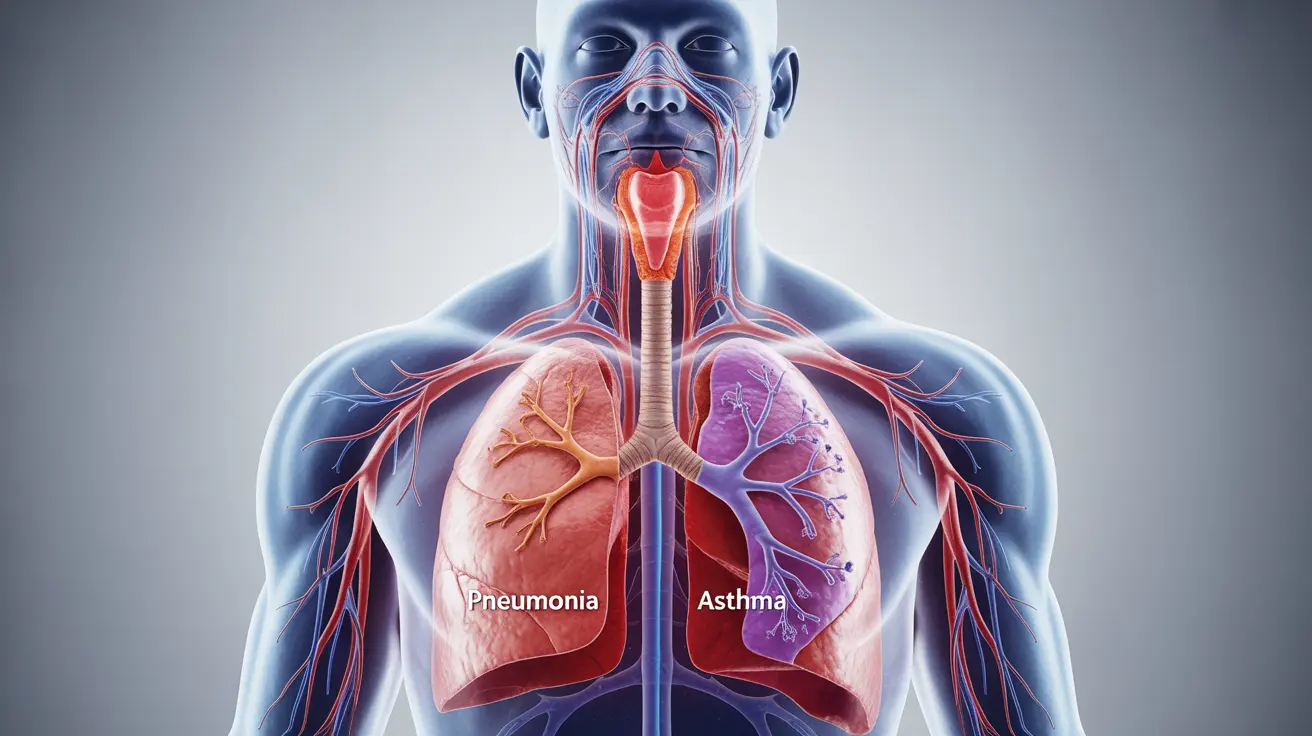The relationship between pneumonia and asthma is complex and significant, affecting millions of people worldwide. Understanding how these two respiratory conditions interact is crucial for both patients and healthcare providers, as each condition can significantly impact the other's severity and management.
For individuals with asthma, the risk of developing pneumonia requires special attention, while those with pneumonia may experience changes in their respiratory health that could affect or reveal underlying asthma conditions. Let's explore this important connection in detail.
Understanding the Relationship Between Pneumonia and Asthma
Pneumonia and asthma are distinct respiratory conditions that can significantly influence each other. While pneumonia is an infection that causes inflammation in the air sacs of the lungs, asthma is a chronic condition characterized by airway inflammation and narrowing. When these conditions intersect, they can create unique challenges for patients and healthcare providers.
How Pneumonia Affects Existing Asthma
For people with existing asthma, pneumonia can pose serious risks and complications. The infection can trigger severe asthma symptoms and lead to more frequent asthma attacks. This occurs because:
- Increased inflammation in the airways
- Greater mucus production
- Reduced lung function
- Heightened bronchial sensitivity
These factors can make it more difficult to manage both conditions effectively and may require adjustments to existing treatment plans.
The Impact of Asthma Medications on Pneumonia Risk
Asthma medications, particularly inhaled corticosteroids, play a crucial role in managing asthma symptoms. However, their use requires careful monitoring as they may influence susceptibility to respiratory infections, including pneumonia. Healthcare providers often need to balance the benefits of asthma control against potential risks.
Prevention Strategies for Asthma Patients
People with asthma can take several important steps to reduce their risk of developing pneumonia:
- Maintaining good asthma control through proper medication use
- Getting recommended vaccinations, including pneumonia and flu shots
- Practicing good hand hygiene
- Avoiding known triggers and irritants
- Regular check-ups with healthcare providers
Treatment Considerations for Both Conditions
When both conditions are present, treatment typically requires a comprehensive approach that addresses both the immediate infection and ongoing asthma management. This may include:
- Antibiotics for bacterial pneumonia
- Adjusted asthma medications as needed
- Enhanced monitoring of respiratory function
- Additional supportive care measures
Frequently Asked Questions
Can pneumonia cause asthma or trigger new asthma symptoms?
Yes, pneumonia can trigger new asthma symptoms or reveal previously undiagnosed asthma. The infection can cause inflammation and heightened airway sensitivity that may persist even after the pneumonia resolves.
Why are people with asthma more likely to develop pneumonia?
People with asthma are more susceptible to pneumonia due to chronic airway inflammation, potential immune system effects from medications, and increased difficulty clearing respiratory infections effectively.
How does pneumonia affect asthma symptoms and asthma attacks?
Pneumonia can significantly worsen asthma symptoms by increasing airway inflammation, triggering bronchospasms, and making it harder to breathe. This can lead to more frequent and severe asthma attacks.
Does using inhaled corticosteroids for asthma increase the risk of pneumonia?
While inhaled corticosteroids are essential for asthma management, some studies suggest they may slightly increase pneumonia risk. However, the benefits of proper asthma control typically outweigh this potential risk.
What preventive measures can people with asthma take to reduce the risk of pneumonia?
Key preventive measures include staying current with vaccinations, maintaining good asthma control, practicing proper hygiene, avoiding sick contacts, and having regular medical check-ups.




